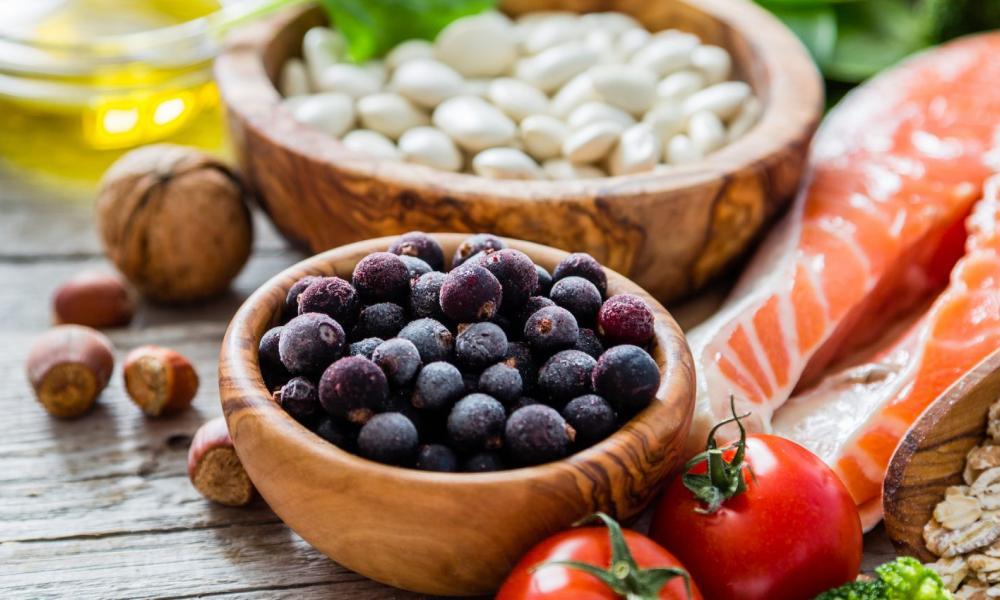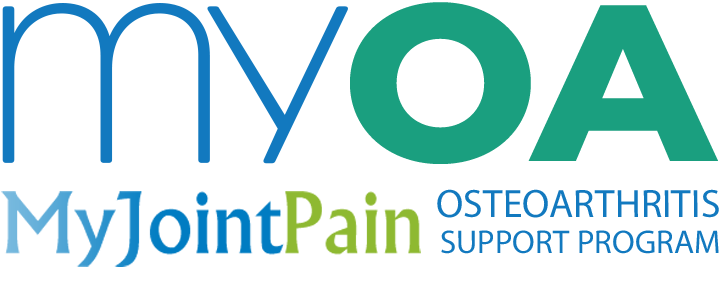
There are some common myths about food and osteoarthritis. This resource provides a clear overview of the latest evidence supporting healthy dietary choices for managing osteoarthritis.
This resource does not provide specific advice for people with other medical conditions or food intolerances. For more specific information, we recommend you consult with a dietitian or nutritionist.
Is there a diet to cure osteoarthritis?
No diet has been proven by research to cure osteoarthritis. Be very cautious of special diets or supplements that claim to cure osteoarthritis. There is some research to suggest a ‘plant-based diet’ may have beneficial effects for managing OA.1,2 However, the best diet for osteoarthritis is a healthy, balanced one to maintain your general health and prevent other medical problems.
Do certain foods cause arthritis?
There is very little proof that specific foods have an effect on osteoarthritis. Osteoarthritis symptoms usually vary day to day. This makes it hard to know if a change in symptoms is because of a particular change in food or just coincidence. Some people with arthritis report improvements after avoiding certain foods. However, this is usually due to individual food intolerances (see below).
I heard I should avoid certain foods to manage osteoarthritis
Nightshade foods
This food group includes tomatoes, potatoes, eggplant and capsicum. There is no proof that these foods have any effect on osteoarthritis symptoms. It is possible that this diet works for some people by removing a food to which they are intolerant.
Acid-producing foods
Osteoarthritis is not caused by eating ‘acidic foods’ like oranges, lemons or tomatoes. Very few foods are as acidic as our digestive juices. Foods termed ‘acidic’ are usually very rich in vitamin C, which is beneficial to the immune system. Avoiding these foods may do more harm than good.
Dairy products
There is no proof that dairy products cause osteoarthritis. Dairy products are a rich source of calcium, which is an important building block for strong bones. Many people with osteoarthritis are at an increased risk of osteoporosis (thinning of the bones) so dairy products may be extra important to maintain bone health. If you have difficulties with dairy products, talk to your doctor about other high calcium foods or calcium supplements.
Vegetarian and plant-based diets
There is an increasing amount of research evidence about the effects of vegetarian and plant-based diets on osteoarthritis. These diets tend to increase your intake of vitamins as you eat more vegetables and fruits. Lower levels of fat in this diet may also help you to lose weight. These factors may help with osteoarthritis symptoms. However, a strict vegetarian or plant- based diet may mean you miss out on other important nutrients, such as iron and vitamin B12.
Are food intolerances linked to osteoarthritis?
There is no evidence to suggest food intolerances are linked to osteoarthritis. Some people may have a reaction, such as an upset stomach, after eating or drinking certain foods. This may be due to a food intolerance. If you feel that certain foods are causing problems, talk to a dietitian or your doctor.
They may suggest you be tested for food intolerances. Do not cut whole food groups from your diet without talking to your doctor as you may miss out on important vitamins and minerals.
Can certain foods help osteoarthritis?
Although most foods have no effect on osteoarthritis, studies show that eating foods rich in omega-3 fats can help reduce inflammation, particularly in rheumatoid arthritis. While these effects are modest compared to medicines, omega-3 fats do not have serious side effects. They also have other health benefits, such as reduced risk of heart disease.
Foods rich in omega-3 fats:
- fish: oily fish, such as sardines and salmon, have greater amounts of omega-3 fats. Try to eat fish at least two to three times a week.
- fish oil supplements: see the Fish oils sheet for more information
- ground linseeds and linseed oil (also called flaxseed)
- canola oil (also called rapeseed oil) walnuts.
Does weight affect osteoarthritis?
Yes, extra body weight increases systemic inflammation and increases stress on many joints, particularly the knees, hips and lower back. There is also a clear link between being overweight and an increased risk of developing osteoarthritis. If you are overweight, losing weight will decrease systemic inflammation and decrease the stress on your joints, reduce pain and make it easier for you to move around.
A guide to healthy eating for osteoarthritis
The best diet for arthritis is a healthy, balanced diet, including a diet high in fresh fruit and vegetables. This can help you reach and maintain a healthy weight and reduce your risk of other health problems. Talk to your doctor or see the Australian Government’s Food for health booklet at www.nhmrc.gov.au/publications to learn about general healthy eating guidelines.
You may also find it helpful to see a dietitian for advice that is tailored to your individual needs.
Your healthcare team can give you more advice and information about whether any of these or other treatments might be useful for you.
Other Resources
State/Territory Arthritis Offices
Your local Arthritis Office can provide further information to assist you and will have a range of education and support activities. Click here to find your local office.
Dietitian
To find a dietitian, talk to your doctor, contact the Dietitians Association of Australia on (02) 6282 9555 or use the ‘find a dietitian’ service at https://dietitiansaustralia.org.au/
Podcasts
Nutrition unlocked: https://shows.acast.com/joint-action/episodes/nutrition-unlocked-for-world-arthritis-day
Top tips for losing weight with osteoarthritis - insights from experts: https://shows.acast.com/joint-action/episodes/top-tips-for-losing-weight-with-osteoarthritis
Plants for Joints: a plant-based diet for osteoarthritis with Wendy Walrabenstein: https://shows.acast.com/joint-action/episodes/plants-for-joints-a-plant-based-diet-for-osteoarthritis
Websites
Nutrition Australia: www.nutritionaustralia.org
Dietitians Association of Australia: https://dietitiansaustralia.org.au/
https://www.who.int/news-room/fact-sheets/detail/healthy-diet
https://www.eatforhealth.gov.au/guidelines/australian-guide-healthy-eating
References
- Walrabenstein W, van der Leeden M, Weijs P, et al. The effect of a multidisciplinary lifestyle program for patients with rheumatoid arthritis, an increased risk for rheumatoid arthritis or with metabolic syndrome-associated osteoarthritis: the “Plants for Joints” randomized controlled trial protocol. Trials. 2021;22(1):715.
- Clinton CM, O’Brien S, Law J, Renier CM, Wendt MR. Whole-Foods, Plant-Based Diet Alleviates the Symptoms of Osteoarthritis. Arthritis. 2015;2015:708152.






